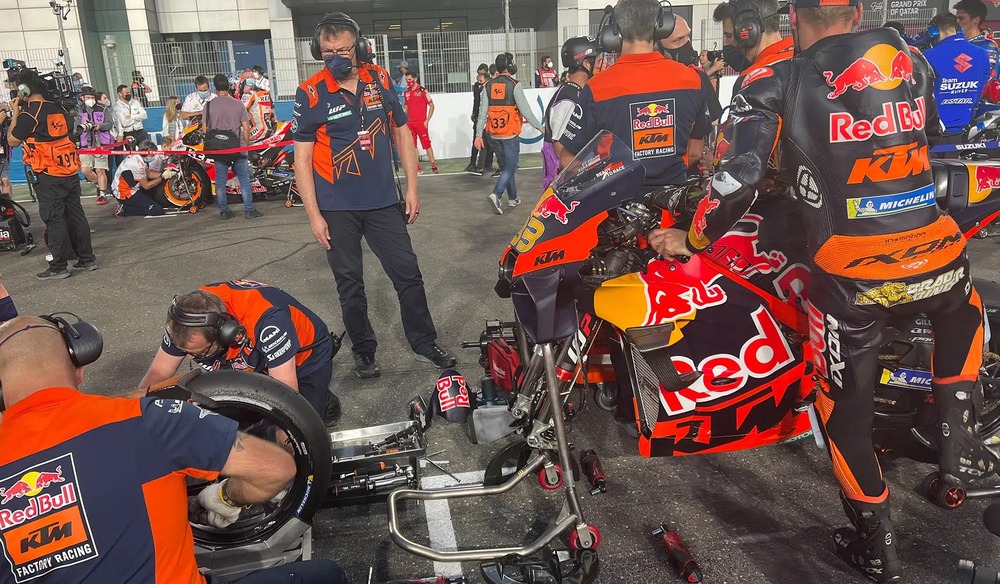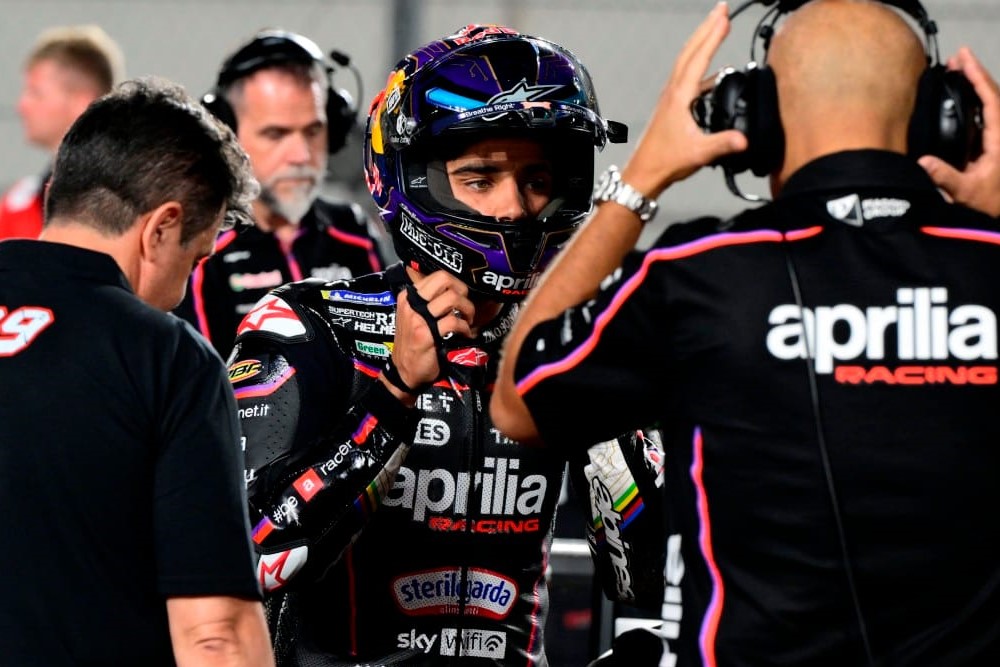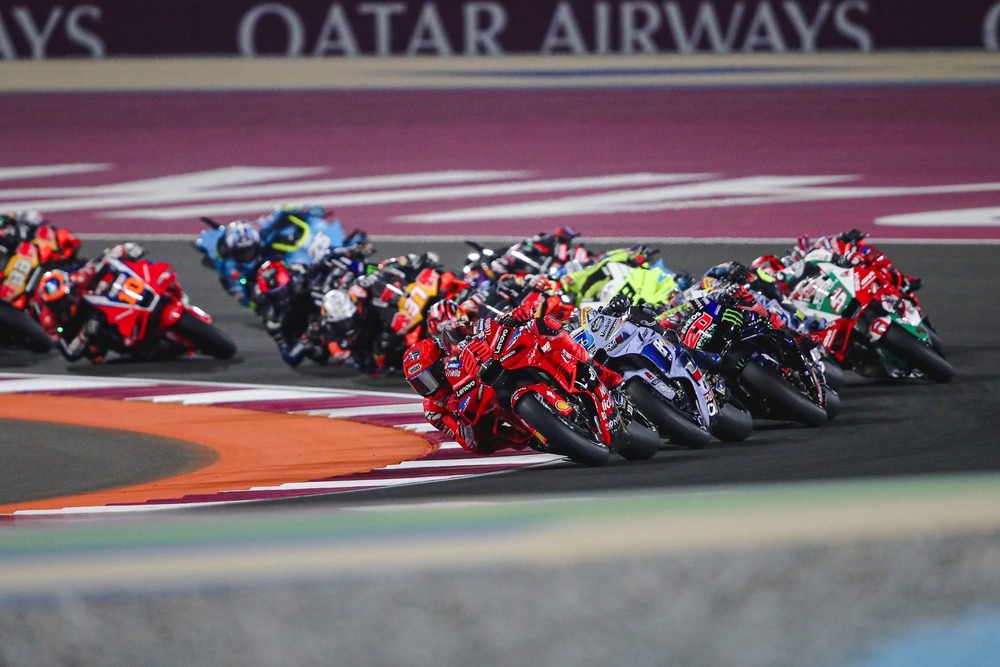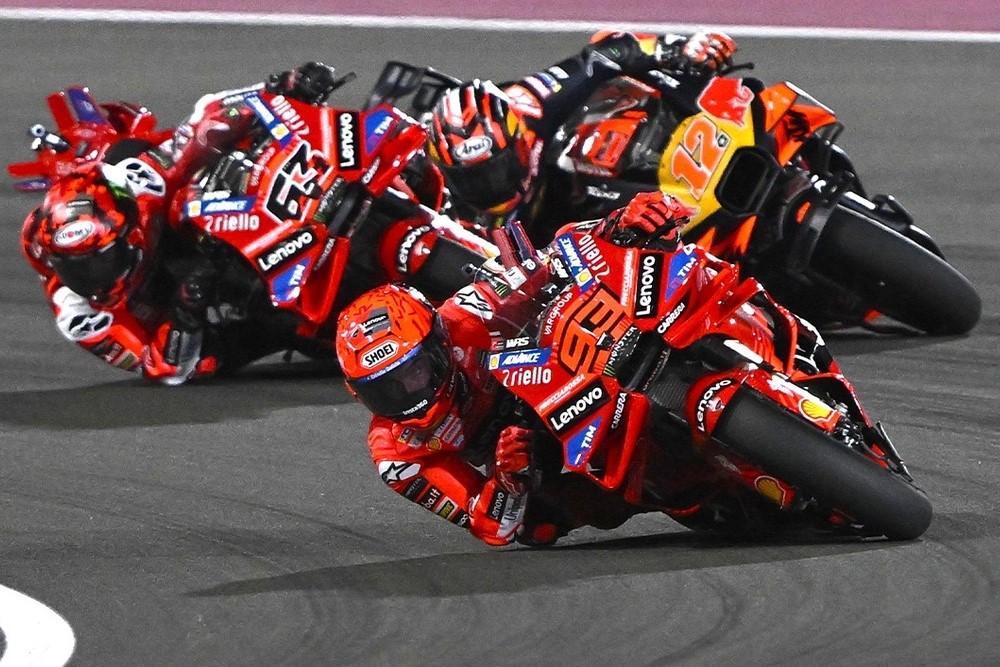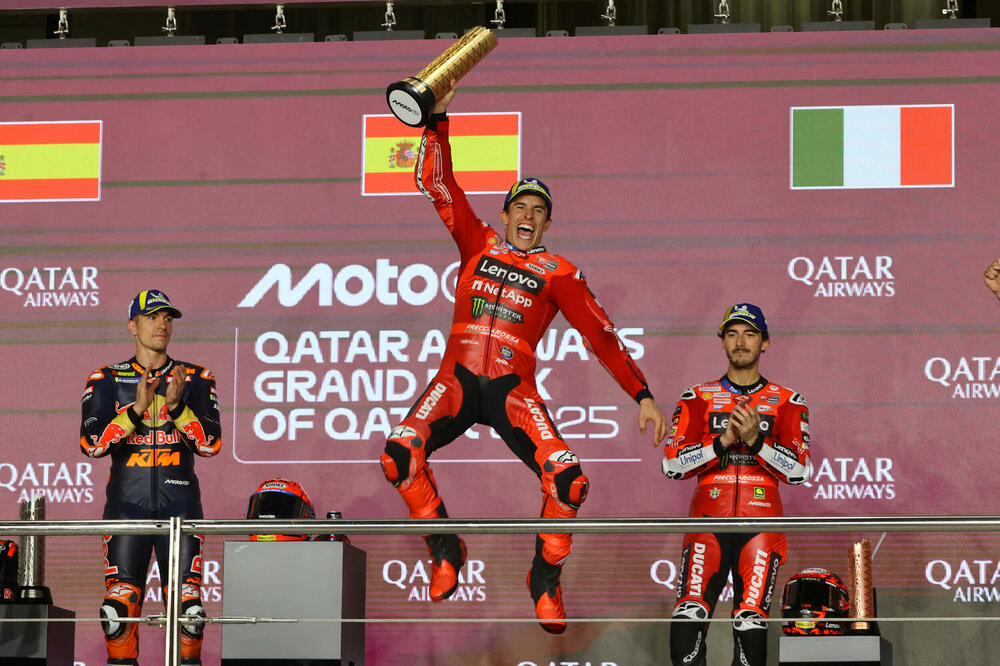KTM MotoGP development projects have been currently suspended as the manufacturer faces a huge financial crisis with reports indicating impending bankruptcy.
The Austrian manufacturer has filed for bankruptcy protection, a move that has sent shockwaves through the motorsport community and raised serious questions about its future in the MotoGP World Championship.
The ramifications of this financial turmoil are far-reaching. While KTM MotoGP participation is assured for the 2025 season, it hangs by a thread as the company grapples with its fiscal responsibilities.
This restructuring was initially seen as a means to protect the racing arm; however, the reality of the financial situation has necessitated a halt in development activities for the RC16 KTM MotoGP bike during the winter break.
This pause means that there will be no significant changes or upgrades to the bike ahead of pre-season testing scheduled for early 2025. The company had previously invested heavily in its racing program, with annual expenditures estimated at around €70 million.
The implications of this halt are profound. With no new developments planned, KTM MotoGP faces an uphill battle to maintain its competitive edge in the premier bike racing series.
As it stands, all long-term projects related to KTM MotoGP are now suspended until clarity regarding KTM’s financial future is achieved.
Despite these challenges, KTM’s management has assured teams and riders that they will be on the grid for the 2025 season with all four bikes. However, there are growing concerns from series organizers Dorna regarding whether this commitment can be fulfilled given the current financial instability.
KTM MotoGP competition director Pete Beirer acknowledged the uncertainty surrounding their MotoGP commitments during an interview with Austrian newspaper Kronen Zeitung.
“Fortunately, the bike for the next season is ready and waiting in the workshop,“ Beirer said. “The start of the 2025 season is organised and MotoGP has stopped engine development for 2026, which helps us immensely in the current situation.
“In technical terms, the motorcycles will no longer make any major leaps and in 2027 the plan is to make some changes, for example to ride-height devices or aerodynamics. The new 850cc engines are also coming.
“At some point, however, we will have to start building these new motorcycles. And until it is clear how we are going to proceed, these plans are currently on hold.”
The freeze on engine development until 2026 provides some temporary relief for KTM MotoGP by limiting costs associated with ongoing research and development. However, looking ahead to 2027 brings new challenges as significant changes in technical regulations are anticipated.
These changes include downsizing engines from 1,000cc to 850cc and introducing major aerodynamic changes that will require substantial investment in new machine designs.
Without a clear path forward and sufficient funding, KTM MotoGP risks falling behind its competitors in an increasingly competitive field.
In a further bid to cut costs and streamline operations, KTM has decided to withdraw financial support from lower-tier categories such as Moto3 and Moto2, as well as from the Red Bull Rookies Cup—a program designed to nurture emerging talent in motorcycle racing.
Beirer indicated that future involvement in these categories would shift towards a model where teams must self-finance their participation. This pivot marks a significant departure from KTM’s previous strategy of investing heavily in youth development and grassroots racing initiatives.
“You also have to bear in mind that we represent and promote KTM in all the championships we take part in,” he explained. “Motorsport is the clear identifier for KTM around the world and the best platform.
“Every KTM sold carries the spirit of motorsport involvement and every title we win. Giving up is not an option in racing either.”
The contracts binding KTM to MotoGP are set to expire at the end of the 2026 season. Should the company opt for withdrawal from the championship, it would be able to do so without incurring penalties.
Such a decision would not only be detrimental to KTM MotoGP but could also alter the sport’s competitive landscape significantly; the manufacturer has established itself as a formidable contender in recent years, contributing vibrancy and competitiveness to the series.
As it stands, KTM is at a critical juncture in its corporate history. The company’s ability to navigate this financial crisis while preserving strategic initiatives like its involvement in MotoGP will be crucial for its long-term survival.
The hope within the motorsport community is that KTM can emerge from this turmoil stronger than before and continue to contribute meaningfully to motorcycle racing on a global scale.
Looking ahead, factory KTM MotoGP team is set to feature riders Pedro Acosta and Brad Binder for the 2025 season, while Tech3 will field Maverick Vinales and Enea Bastianini under factory support.

